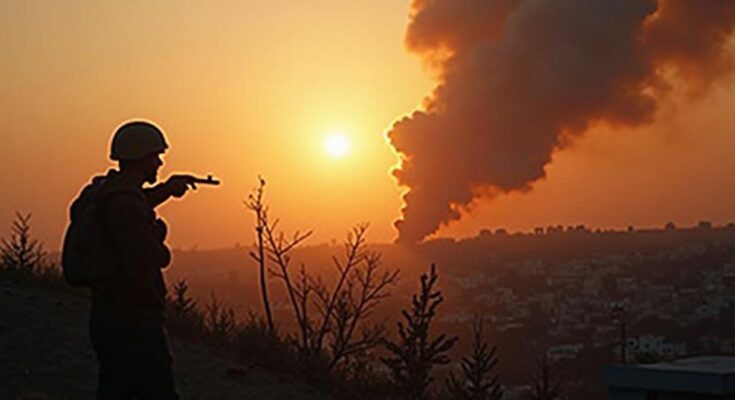The Israeli military has launched extensive strikes against Hezbollah positions in Lebanon following the assassination of Hassan Nasrallah. Iran has declared that his death “will not go unpunished”, leading to escalating tensions and calls for ceasefire. President Biden referred to Nasrallah’s death as a “measure of justice” amid significant casualties reported in the conflict.
On early Sunday, the Israeli military reported that it had targeted numerous Hezbollah installations in Lebanon over the preceding twelve hours, including missile launchers directly aimed at Israel. This escalation follows the confirmation of the death of Hassan Nasrallah, Hezbollah’s long-term leader, in an airstrike conducted in Beirut on Friday. In response to this incident, Iran declared that Nasrallah’s death “will not go unpunished” and initiated five days of public mourning. United States President Joe Biden characterized the killing as a “measure of justice” for the victims of what he described as a “40-year reign of terror” from Hezbollah, while reiterating his call for a ceasefire between the conflicting parties. The Israeli Defense Forces announced on Saturday the neutralization of Nasrallah, a significant figure within the militant organization. Following his death, Hezbollah vowed to persist in its resistance against Israel. Israeli Prime Minister Binyamin Netanyahu asserted that Nasrallah’s assassination would reconfigure the regional balance of power for years ahead. In the backdrop of these military actions, the Lebanese health ministry has reported casualties, noting at least thirty-three fatalities and nearly two hundred injuries as a result of Israel’s ongoing strikes on Hezbollah positions.
The conflict between Israel and Hezbollah has intensified dramatically with the recent killing of Hassan Nasrallah, a leader who played a pivotal role in orchestrating Hezbollah’s stance against Israel for decades. His death comes amidst escalating hostilities, marked by military actions and counteractions between Israel and Hezbollah’s Iran-backed forces. Iran, traditionally an ally of Hezbollah, has expressed strong condemnation of Nasrallah’s killing and has vowed retribution, suggesting a potential widening of hostilities in the region. U.S. involvement, under President Biden’s administration, underscores the international implications of the ongoing conflict, especially regarding the stability of the Middle Eastern geopolitical landscape.
In summary, the assassination of Hezbollah leader Hassan Nasrallah by Israeli forces has prompted significant military repercussions and heightened regional tensions. Both Israel and Hezbollah are reinforcing their military postures, with Iran promising retaliation for Nasrallah’s death. The U.S. administration continues to call for restraint, reflecting its concern over the potential consequences of an escalated conflict. As the situation develops, monitoring the responses from both sides will be critical in gauging the future dynamics of Middle East conflicts.
Original Source: www.france24.com




